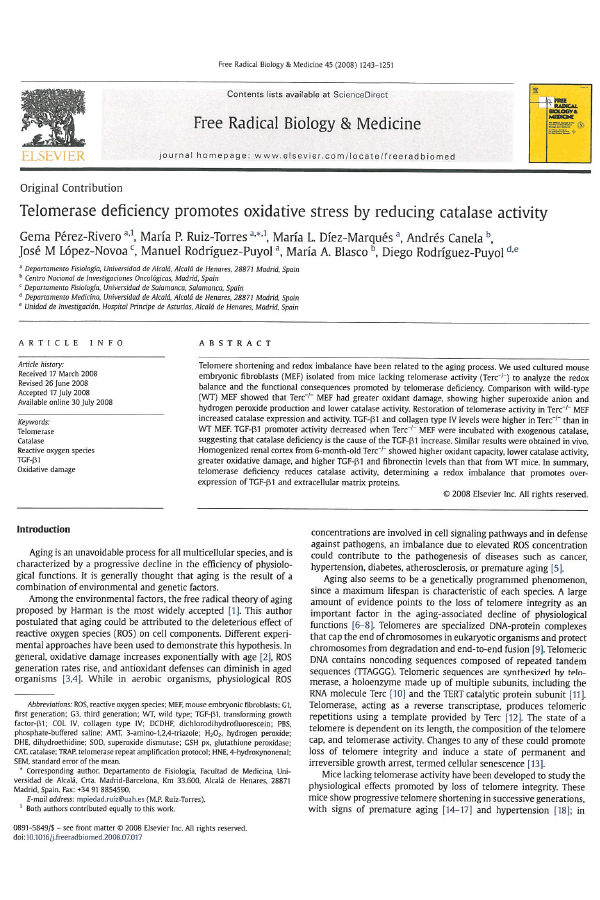Studies & Research

Telomerase deficiency promotes oxadative...
"...the first experimental evidence of a direct relationship between telomerase deficiency and increased oxidative stress..."
Download- Download: PDF
Excerpt
Aging is an unavoidable process for all multicellular species, and is characterized by a progressive decline in efficiency of physiological functions. It is generally thought that aging is the result of a combination of environment and genetic factors.
Among the environmental factors, the free radical theory of aging proposed by Harman is the most widely accepted [1]. This author postulated that aging could be attributed to the deleterious effect of reactive oxygen species (ROS) on cell components. Different experimental approaches have been used to demonstrate this hypothesis. In general, oxidative damage increases exponentially with age [2], ROS generation rates rise, and antioxidant defenses can diminish in aged organism [3,4].
While in aerobic organisms, physiological ROS concentrations are involved in cell signaling pathways and in defense against pathogens, an imbalance due to elevated ROS concentrations could contribute to the pathogenesis of diseases such as cancer, hypertension, diabetes, atherosclerosis, or premature aging [5].
